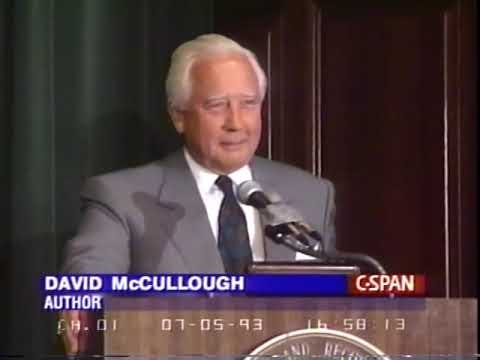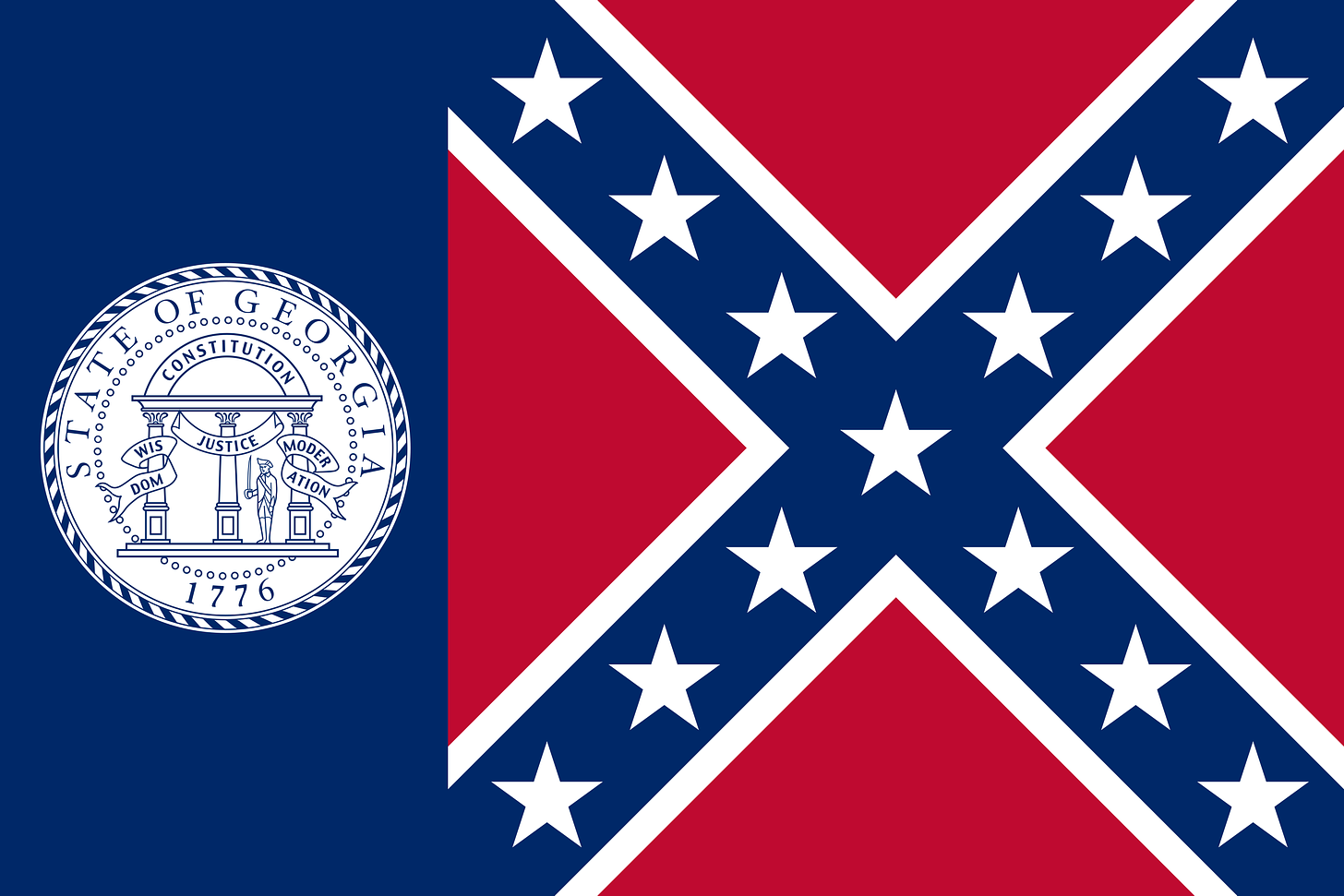This video of David McCullough fielding a question about the Confederate flag recently came across my feed. I share it because it gives us a sense of how the public conversation about the Confederate flag has evolved since 1993.
It’s clear that McCullough was uncomfortable having to respond to the question about whether the flag should be removed from the state house grounds in Mississippi, Alabama, and Georgia, but he chose to do so. At the time both Mississippi’s and Georgia’s flags included the flag as part of its overall pattern.
McCullough attempted both empathize with African Americans, who “might” see the flag as representing “redneck racism” (as opposed to just plain racism) but he quickly moves to reassure his audience that he has nothing but the deepest respect for the men who fought under that flag for four long years against the United States.
As I’ve said before, I believe this to be an untenable position. It is certainly true that Confederate soldiers volunteered for any number of reasons, including the defense of slavery and white supremacy. Others who were drafted also held views about what the war was about, but what is often ignored is the fact that every soldier—regardless of whether they owned 100 slaves or no slaves at all—fought for a government whose purpose was to defend and expand the institution of slavery.
It is also the case that throughout much of the mid-20th century the Confederate flag was embraced as a form of resistance against the civil rights movement. McCullough certainly must have been aware of this history.
McCullough ultimately embraced a reconciliationist position in 1993 that views Confederates as his fellow Americans and one that acknowledges their dignity and bravery.
It would be very interesting to see how Mr. McCullough would answer that same question today.





Well said, Dr. Levin. I think part of the issue is that people seem to believe that this position of the confederate flag, albeit its many alterations, is emblematic of history itself, but that is the furthest thing from the truth. These positions were established deliberately, with a clear goal: the maintenance and continuation of white supremacy.
"It would be very interesting to see how Mr. McCullough would answer that same question today."
Actually, that's all that really matters here, not what he thought or said almost 30 years ago. How many people would what they said then judging them today? it's totally unfair to judge someone by the standards you hold today for what they did then. This seems to me unnecessary McCullough-bashing on your part.
Best
Rob